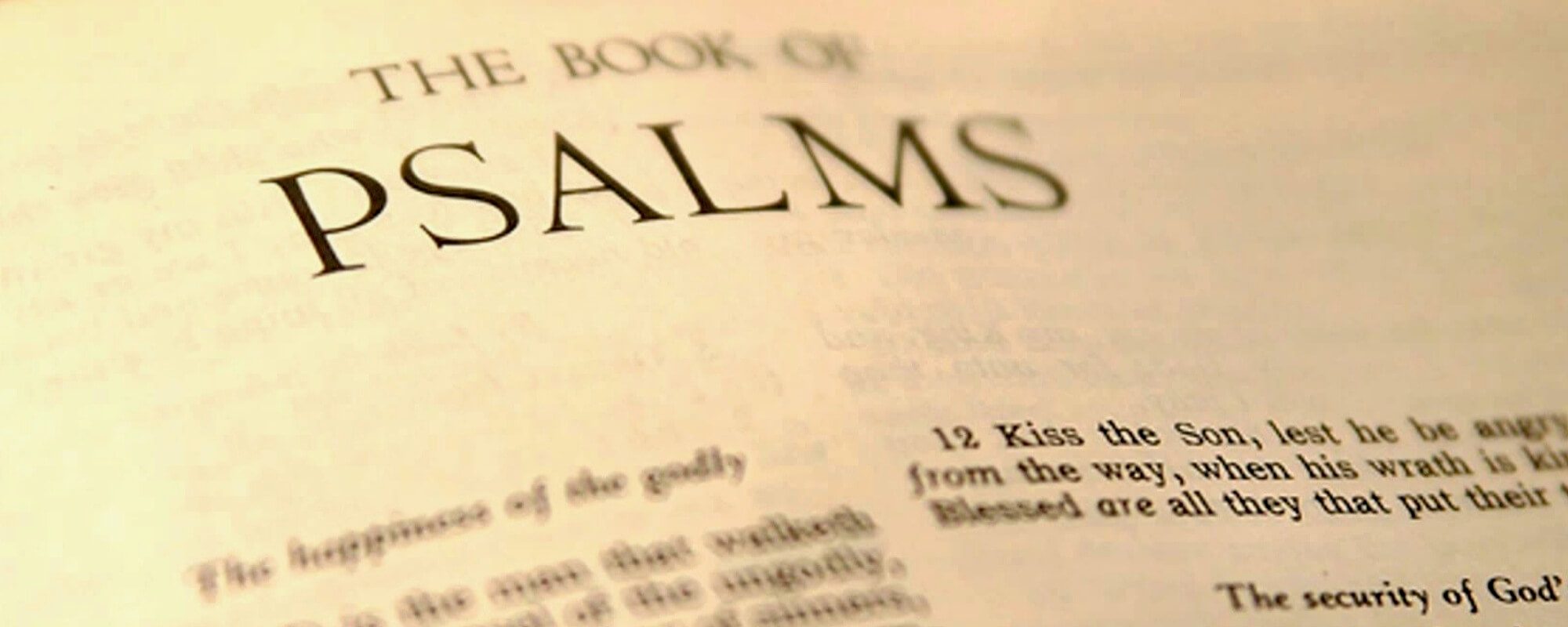<<GotoNote

The Book of Psalms (/sɑːmz/ or /sɔː(l)mz/ SAW(L)MZ; Hebrew: .mw-parser-output .script-hebrew,.mw-parser-output .script-Hebr{font-size:1.15em;font-family:"Ezra SIL","Ezra SIL SR","Keter Aram Tsova","Taamey Ashkenaz","Taamey David CLM","Taamey Frank CLM","Frank Ruehl CLM","Keter YG","Shofar","David CLM","Hadasim CLM","Simple CLM","Nachlieli","SBL BibLit","SBL Hebrew",Cardo,Alef,"Noto Serif Hebrew","Noto Sans Hebrew","David Libre",David,"Times New Roman",Gisha,Arial,FreeSerif,FreeSans}תְּהִלִּים, Tehillim, "praises"), commonly referred to simply as Psalms or "the Psalms", is the first book of the Ketuvim ("Writings"), the third section of the Hebrew Bible, and thus a book of the Christian Old Testament.[1] The title is derived from the Greek translation, ψαλμοί, psalmoi, meaning "instrumental music" and, by extension, "the words accompanying the music".[2] The book is an anthology of individual psalms, with 150 in the Jewish and Western Christian tradition and more in the Eastern Christian churches.[3][4] Many are linked to the name of David, but his authorship is not accepted by modern scholars.[4]
The Book of Psalms is divided into five sections, each closing with a doxology (i.e., a benediction)—these divisions were probably introduced by the final editors to imitate the five-fold division of the Torah:[5]
Many psalms (116 of the 150) have individual superscriptions (titles), ranging from lengthy comments to a single word. Over a third appear to be musical directions, addressed to the "leader" or "choirmaster", including such statements as "with stringed instruments" and "according to lilies". Others appear to be references to types of musical composition, such as "A psalm" and "Song", or directions regarding the occasion for using the psalm ("On the dedication of the temple", "For the memorial offering", etc.). Many carry the names of individuals, the most common (73 psalms—75 if including the two Psalms attributed by the New Testament to David) being of David, and thirteen of these relate explicitly to incidents in the king's life.[6] Others named include Asaph (12), the sons of Korah (11), Solomon (2), Moses (1), Ethan the Ezrahite (1), and Heman the Ezrahite (1). The LXX, the Peshitta (the Syriac Vulgate), and the Latin Vulgate each associate several Psalms (such as 111 and 145) with Haggai and Zechariah. The LXX also attributes several Psalms (like 112 and 135) to Ezekiel and to Jeremiah.
Psalms are usually identified by a sequence number, often preceded by the abbreviation "Ps."
Numbering of the Psalms differs—mostly by one, see table—between the Hebrew (Masoretic) and Greek (Septuagint) manuscripts. Protestant translations (Lutheran, Anglican, Calvinist) use the Hebrew numbering, but other Christian traditions vary:
For the remainder of this article, the Hebrew numbering is used, unless otherwise noted.
...https://en.wikipedia.org/wiki/Psalms